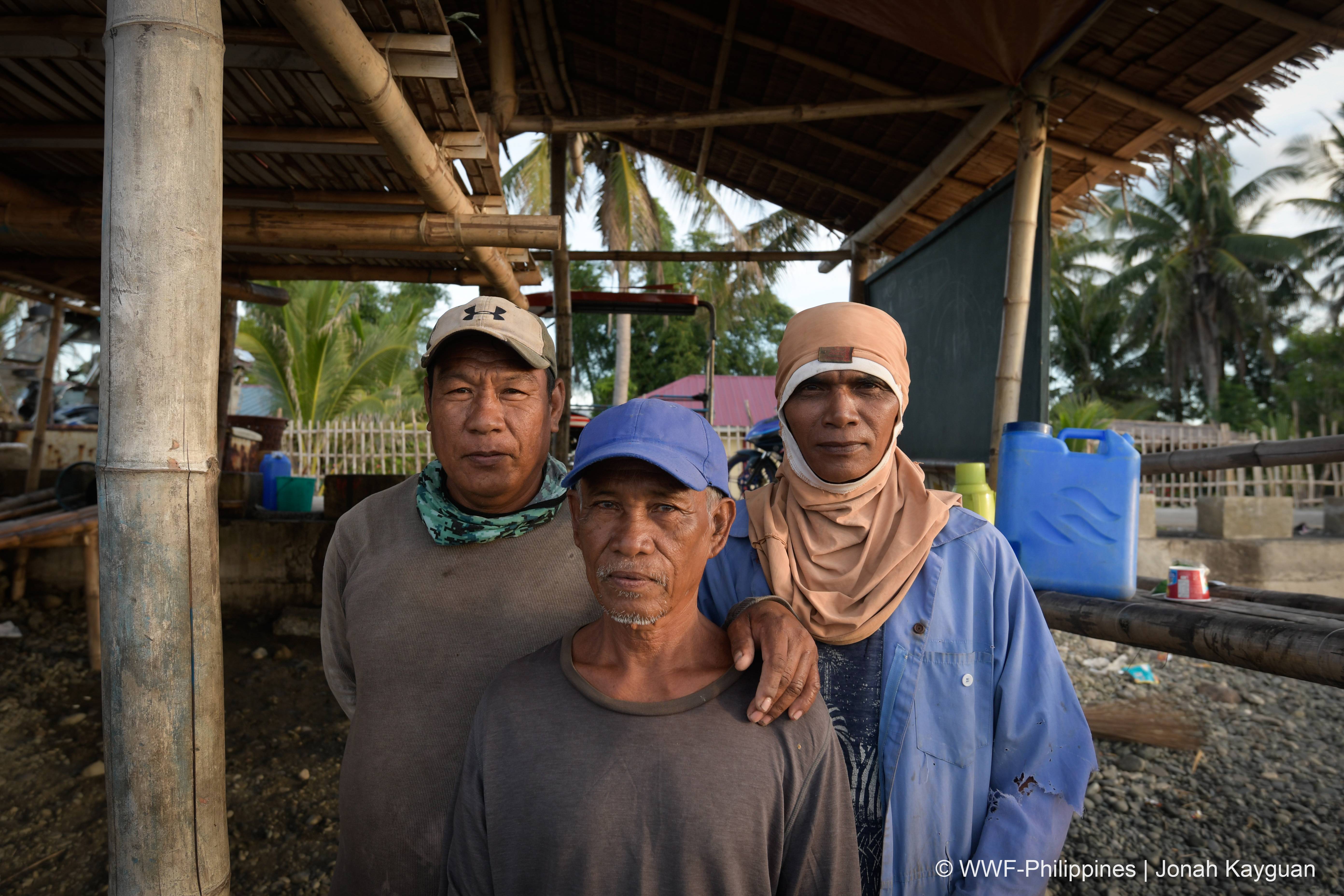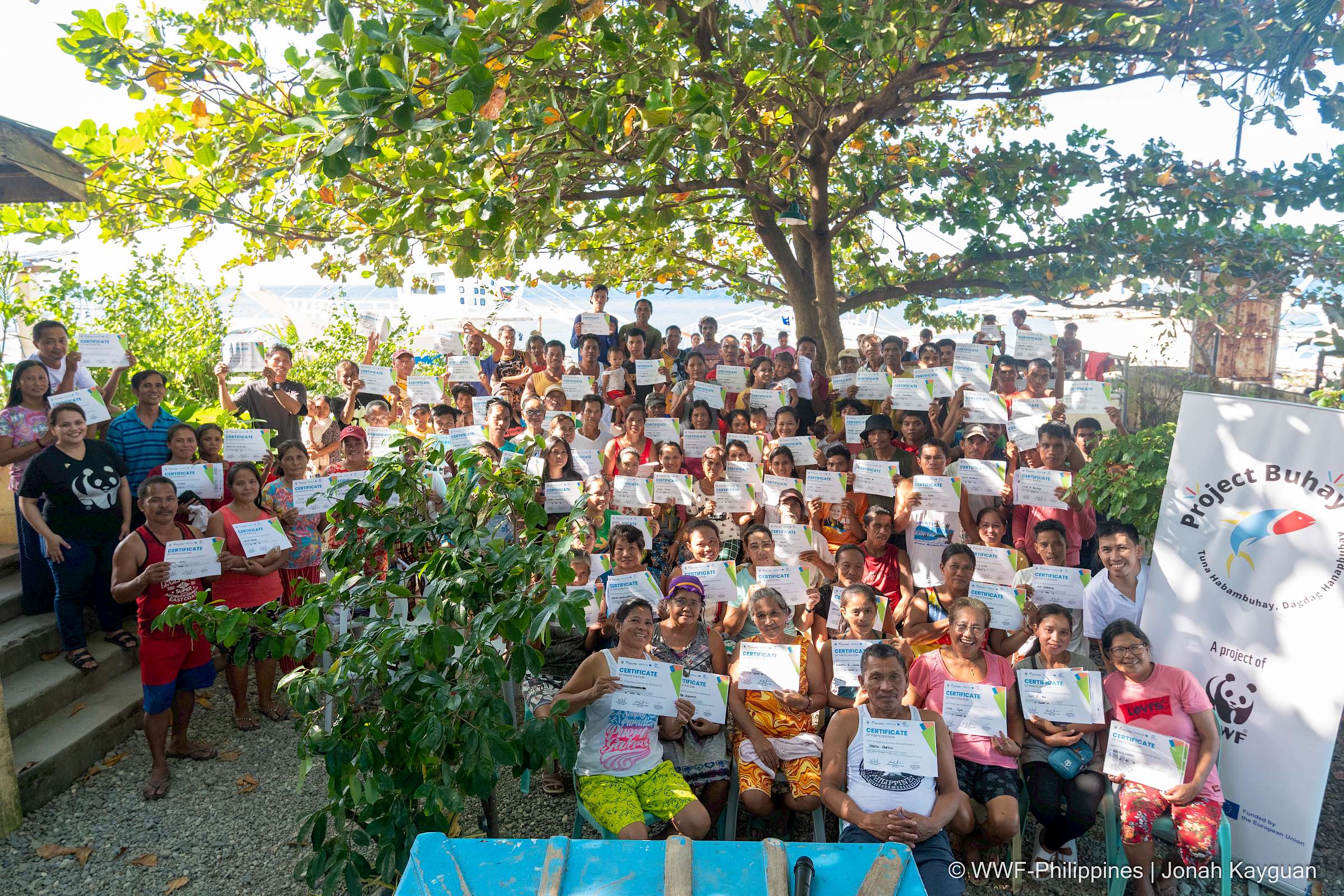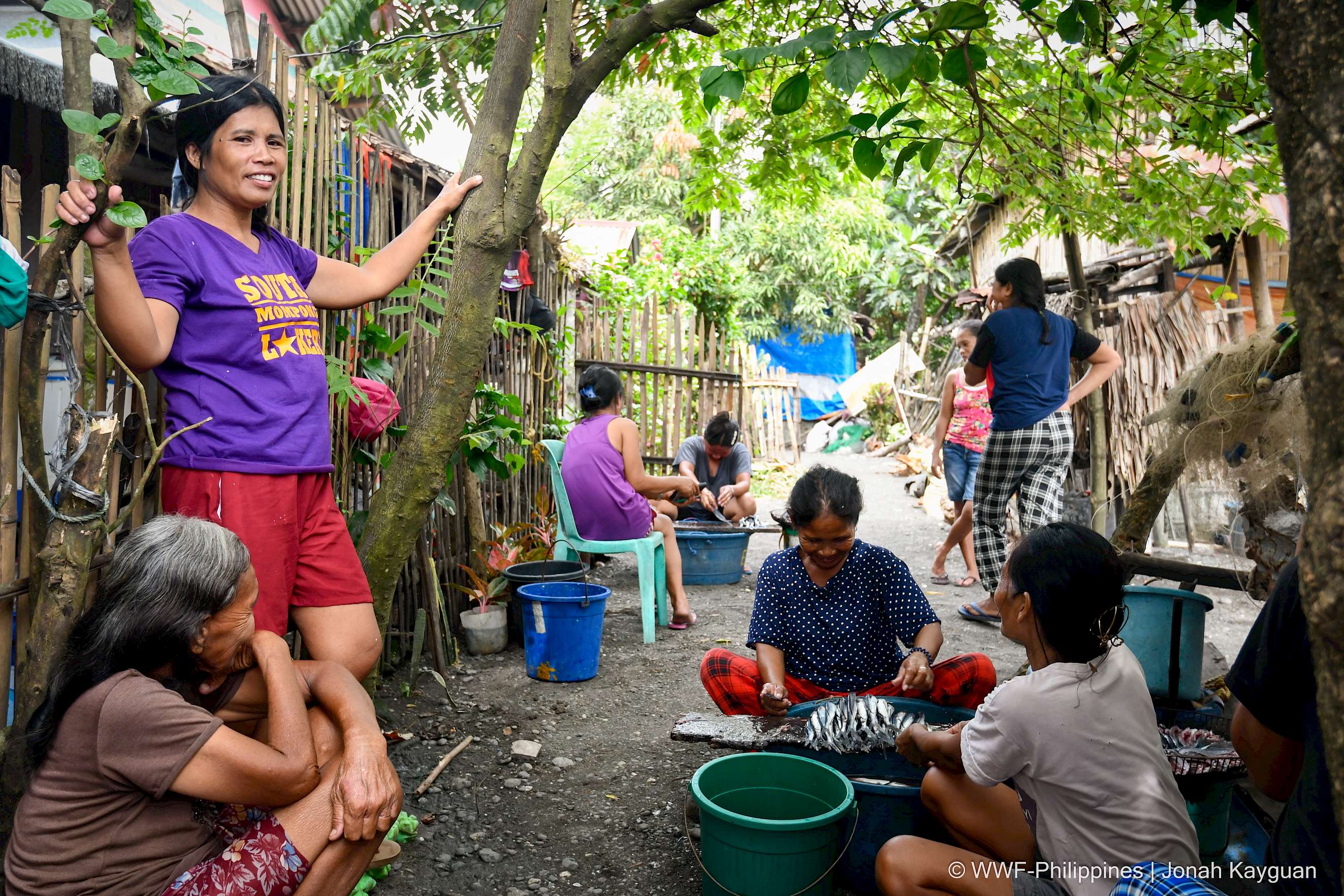
We shouldn't just continue to catch fish. In addition to fishing, we should also be taking care of our oceans, shares Jemuel Cueto, a long-time handline tuna fisherman and partner of the World Wide Fund for Nature-Philippines (WWF-Philippines) in Occidental Mindoro.
Despite Occidental Mindoro being endowed with the rich marine life of the Mindoro Strait and being located along the migration path of tuna, unsustainable fishing practices threaten its marine ecosystems and livelihoods. Fishers navigated their way in an increasingly crowded and utilized fishery. Incidents of dynamite and cyanide fishing abound, with trash further polluting waters. This was the reality that confronted WWF-Philippines when they initiated a Fishery Improvement Program (FIP) with the tuna fishing communities of Occidental Mindoro in 2012.
Since then, much has changed. The handline tuna fishermen of Occidental Mindoro have united and found their voice through the Occidental Mindoro Federation for Tuna Fishers Association (OMFTFA). Through training sessions and workshops, they have learned how to better care for their fishing grounds and to prioritize sustainability for the sake of future fishing activities.
In 2020, the yellowfin tuna handline fishermen of the Mindoro Strait and the Lagonoy Gulf, along with processors who supported their cause, established the Philippine Tuna Handline Partnership (PTHP)—a coalition that serves as a client group providing them access to local and international markets, and through which they can strive to earn an eco-label certification. A year later, the PTHP was certified by the Marine Stewardship Council (MSC), marking the culmination of the community's efforts towards achieving environmental sustainability.
The work didn't stop there. The last decade has made it clear that long-term sustainability cannot exist without equity. When fishermen earn enough, they can move beyond mere survival and have the capacity to practice sustainability. This is the driving force behind the EU funded SWITCH-Asia Mindoro Strait Sustainable and Equitable Tuna for Bankability (MS-SETB) project, launched in 2022 and implemented by WWF-Philippines.
MS-SETB focuses on two strategies. The first is to maximize the existing catch by improving quality. Food safety and quality assurance training for all supply chain participants—from fishermen to exporters—ensures high-quality standards from start to finish. To date, MS-SETB has reached more than 500 participants in these sessions. Local governments also receive assistance from MS-SETB in making community fish landing centers (CFLCs) operational. CFLCs, equipped with post-harvest facilities, help preserve the quality of the catch to secure better prices. They also facilitate fish catch monitoring—an essential aspect of sustainable fishing.

Members of the Sitio Kalangigan Community pose with their certificates, commemorating the end of the Food Safety Training session facilitated by MS-SETB. Sitio Kalangigan is a remote village accessed only by boat. Fishing is the primary source of income for the remote community.
The second strategy is to transform communities beyond simply being beneficiaries. Long-term equity means building investment potential and becoming proper business entities. The project is exploring the development of ancillary products and industries (e.g., squid, flying fish) and providing value-adding activities, such as workshops and business planning assistance. Another ongoing effort is to create a bankable portfolio—a compilation of identified large-scale projects to be marketed as potential investments that could create alternative jobs for fishermen.
Currently, MS-SETB has identified eight associations with whom alternative livelihoods will be developed. These ventures include cold storage services, squid products, and flying fish products. Bankable projects have also been identified and the creation of business plans is underway.
There is much more to be done, and the bulk of the work falls on the shoulders of the community. Through the EU SWITCH-Asia MS-SETB project, WWF-Philippines is committed to equipping partner communities with the knowledge, skills, and equipment to improve or grow independently because true sustainability means they remain in control of their own development. In the long run, the vision is for tuna fishing communities of Occidental Mindoro to become a learning destination for replicating efforts toward sustainable and equitable fisheries.

Members of the Ligaya Flying Fish Catchers Women Association (LFCWA) clean and process caught fish. Women are a vital part of Occidental Mindoro’s fishing communities as they help boost household incomes, supplement livelihoods, and add value to caught fish. MS-SETB is closely working with the various women’s groups in Occidental Mindoro.


